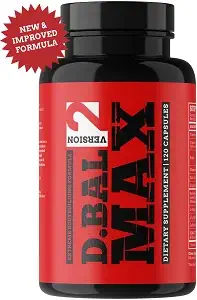- Have any questions?
- hello@bigandripped.com
The Impact of Caffeine Intake on Muscle Strength and Power Performance

Key Highlights
- Caffeine is a natural stimulant that is legal and easily available.
- The benefits of caffeine in improving performance, power, and endurance make it an important ingredient in leading muscle-building supplements.
- Caffeine is also found to have a positive effect on muscle strength because of its ergogenic effect. 3–9 mg·kg−1 of caffeine is scientifically proven to increase muscle strength.
Caffeine is a powerful addictive stimulant for everyone irrespective of whether or not they are into exercise.
It is because of its metabolism-boosting properties and ability to keep you going.
This is the reason why there are a lot of caffeine workout supplements and pre-workout products.
Directly or indirectly, this everyday kitchen staple has grabbed a special place in the lives of athletes. They use it to accelerate weight loss improve energy, and increase metabolism, endurance, and muscle strength.
But the debate around caffeine and muscle strength doesn’t seem to slacken off because of its stress-inducing activity.
Keeping everything aside, let’s focus on how does caffeine increase muscle strength and what quantity of caffeine is safe for someone focusing on strength training.
How Does Caffeine Increase Muscle Strength?
Table of Contents
Caffeine is a widely consumed psychotic substance that has soon become ubiquitous in the world of sports and muscle-building.
While it is scientifically backed to have a positive effect on energy and metabolism, the effects of caffeine on muscle strength are quite controversial.
However, most of the adverse results are related to the dosage. Therefore, it is believed that when consumed in the right quantity, caffeine can increase muscle strength.
In a study published by The Journal of International Society of Sports Nutrition, the meta-analysis of 10 studies shows a significant ergogenic effect of caffeine ingestion on maximal muscle strength of the upper body as well as power.
Caffeine affects muscle strength and overall muscle building in multiple ways.
Another meta-analysis suggests that caffeine ingestion improves exercise performance in a broad range of workouts.
The study also highlights the ergogenic effects of caffeine on muscle strength, endurance, aerobic power, and anaerobic endurance.
These results are substantiated by moderate to high-quality studies.
Based on these and numerous other studies and research, here is how does caffeine increases muscle growth. Caffeine and muscle strength; here is how it all happens.
#1. Improves Anabolic Effect
Caffeine is found to have a positive anabolic effect.
In a study it is found to cause an increase in interleukin 6; which is interpreted by the researchers as the anabolic effect of caffeine.
This helps improve overall muscular power which then leads to an increase in muscle strength by upgrading the workout sessions and intensity.
#2. Positive Effect on Muscle Recovery
The importance of muscle recovery in developing muscle strength cannot be denied.
One can only expect to rock the Hulk’s muscles and strength if he/she improves muscle recovery.
If you’re into bodybuilding, there is no way you aren’t familiar with delayed-onset muscle soreness. Interestingly, caffeine has both delayed as well as immediate effects on muscle soreness.
As per the findings of The Journal of Strength and Conditioning Research, sustained caffeine ingestion in the days after the exercise bout shows a beneficial effect on the attenuation of the DOMS.
So if you have been wondering does caffeine helps muscle recovery, the answer is absolutely yes. It reduces muscle soreness and thus accelerates the muscle recovery process.
#3. Direct effects on skeletal muscle
Another answer to how does caffeine increase muscle strength is its effect on skeletal muscles.
Notably, by boosting the central nervous system, caffeine affects the strength-training performance and thus affects the muscles.
As per the reports of the study, caffeine increases the release of calcium by binding to ryanodine receptors in muscle cells. It increases muscle contractility associated with calcium release.
This as a result leads to an improvement in strength. That’s how does caffeine affect muscle contraction and leads to an increase in muscle strength.
#4. Blocks adenosine A2A receptors
There is no denying the fact that caffeine keeps you awake. This is the primary reason why people like to include coffee in their routine.
It does so by blocking the adenosine A2A receptors that are responsible for sleepy feeling. This leads to an activation of dopamine D2 receptors and the stimulation of dopaminergic networks in the brain.
This stimulation leads to an improvement in motivation for exercise, reduces muscle fatigue sensation, and reduces pain and effort perception. All of these combined, lead to an increase in muscle strength and endurance.
#5. Boosts Metabolism
Several researches show the significant effect of caffeine on increasing metabolic rate. While it has obvious effects on weight loss, increased metabolism also supports muscle strength.
Improved metabolism allows you to gain lean muscle mass and endurance.
In fact, in studies caffeine consumption is shown to have an increase of 6-7 % increase in muscular endurance. This leads to an increase in muscle strength.
While these theories clearly show how caffeine increases muscle strength, a lot of these effects depend on the correct dosage.
The reason why the popular muscle-building supplements work better than direct caffeine consumption is because of the effective dosage. So…
How Much Caffeine Increases Muscle Strength?
There are a lot of speculations and answers based on different experiences. Therefore, we’ll focus on what the experts and scientific data suggest.
Study 1:
As per a study, higher muscle dosage may have the ability to enhance strength performance due to muscle contractility. (source)
The study recommends that a caffeine dosage of 3–9 mg kg−1 is both safe and has an ergogenic effect. However, the study hypothesized that higher doses of 8 mg∙kg bw−1 can improve muscular strength.
Study 2:
Another study by The International Society of Sports Nutrition says that caffeine is a widely used substance in the fitness population.
It is shown to acutely enhance the aspects of exercise. Notably, its ergogenic effects can be triggered when used in the quantity of f 3–6 mg/kg body mass 60 min pre-exercise.
It is not common to use caffeine in higher doses than 6 mg·kg−1, you can use it up to 8 mg·kg−1 after consulting the professionals.
This is because only higher doses of caffeine are found to have a positive effect on muscle strength. So, that’s how does caffeine increase muscle strength.
While caffeine has a lot to contribute in more than one way, its dosage is what makes a big difference.
This is probably the reason most bodybuilders and athletes include pre-workout supplements and caffeine supplements instead.
Adding to this, these supplements also include ingredients that subside the effect of bloating that come in handy with excessive intake of caffeine.
Best Caffeine Supplement for Muscle
D-Bal Max is a popular bodybuilding supplement that is a legal and natural alternative to the popular steroid Dianabol.
This muscle-building supplement is trusted by more than 180,000 guys for explosive energy, mega muscle growth and strength, rapid recovery, and faster fat burn.
It is specifically designed for men who want an anabolic kickstart to pack on lean muscles, break a plateau, and get back their toned physique.
The incredible D-Bal Max before and after reviews are the results of its 11 ingredients. This includes senactiv, KSM-66 ashwagandha, magnesium, zinc, b vitamins, and L-arginine as its primary ingredients.
Not to mention, D-Bal Max also includes Caffeine Anhydrous as one of its major components.
Most importantly, D-Bal Max starts showing results in just 3 months and is also soy-free, gluten-free, and suitable for vegetarians.
This bodybuilding supplement can help you get lean and stronger without working out like a maniac. It is among the best caffeine supplements for bodybuilding.
In less than a decade, caffeine has become a major ingredient of most of the muscle-building supplements. Its effect on muscle growth, endurance, and strength adds to its popularity.
Conclusion
Caffeine is a natural and legal stimulant that works by affecting the central nervous system.
Its abundant benefits in improving performance, fat burn, weight loss, and muscle strength, make it a popular supplement ingredient.
Numerous pre-workouts, muscle-building, and performance-enhancing products include caffeine in their blend.
These products are constantly in use and wide demand among workout enthusiasts, fitness freaks, athletes, and bodybuilders.
They use it to keep themselves more energetic for longer, improving muscle recovery, and improving muscle endurance.
Nonetheless, the effectiveness of the popular stimulant majorly relies on the quantity consumed.
If you are training to increase muscle strength, it makes sense to include caffeine in a pre-workout diet with 6-8 mg caffeine.
However, don’t forget to have a clean diet and restrict any additional caffeine consumption if you are taking caffeine supplements for bodybuilding.
It is also critical to consult a doctor or professional before you include caffeine in your regime.
Adding to it, make sure you are not allergic to caffeine before you include caffeine supplements in your workout diet. This is your sign to use caffeine for more than keeping you awake.



